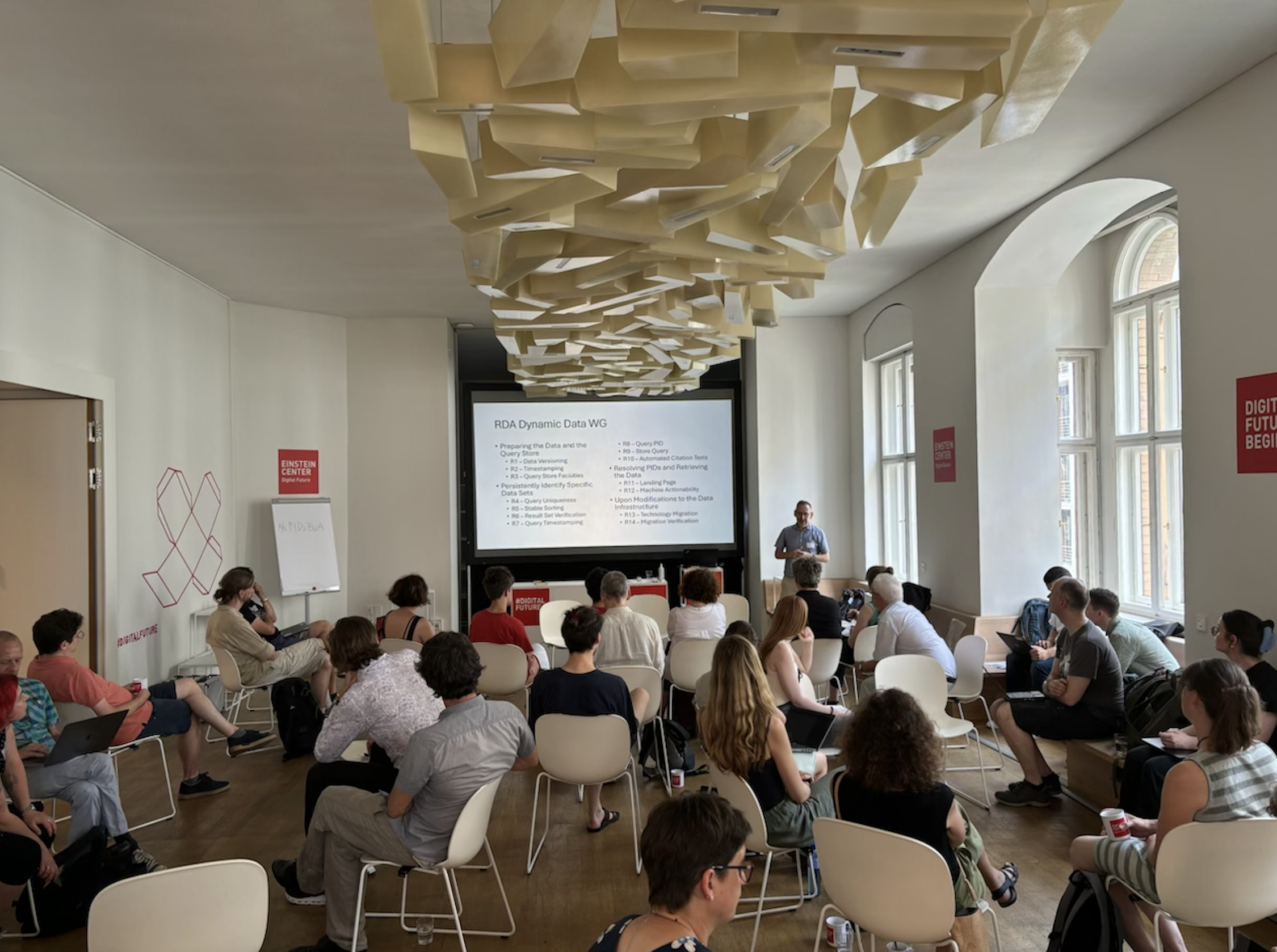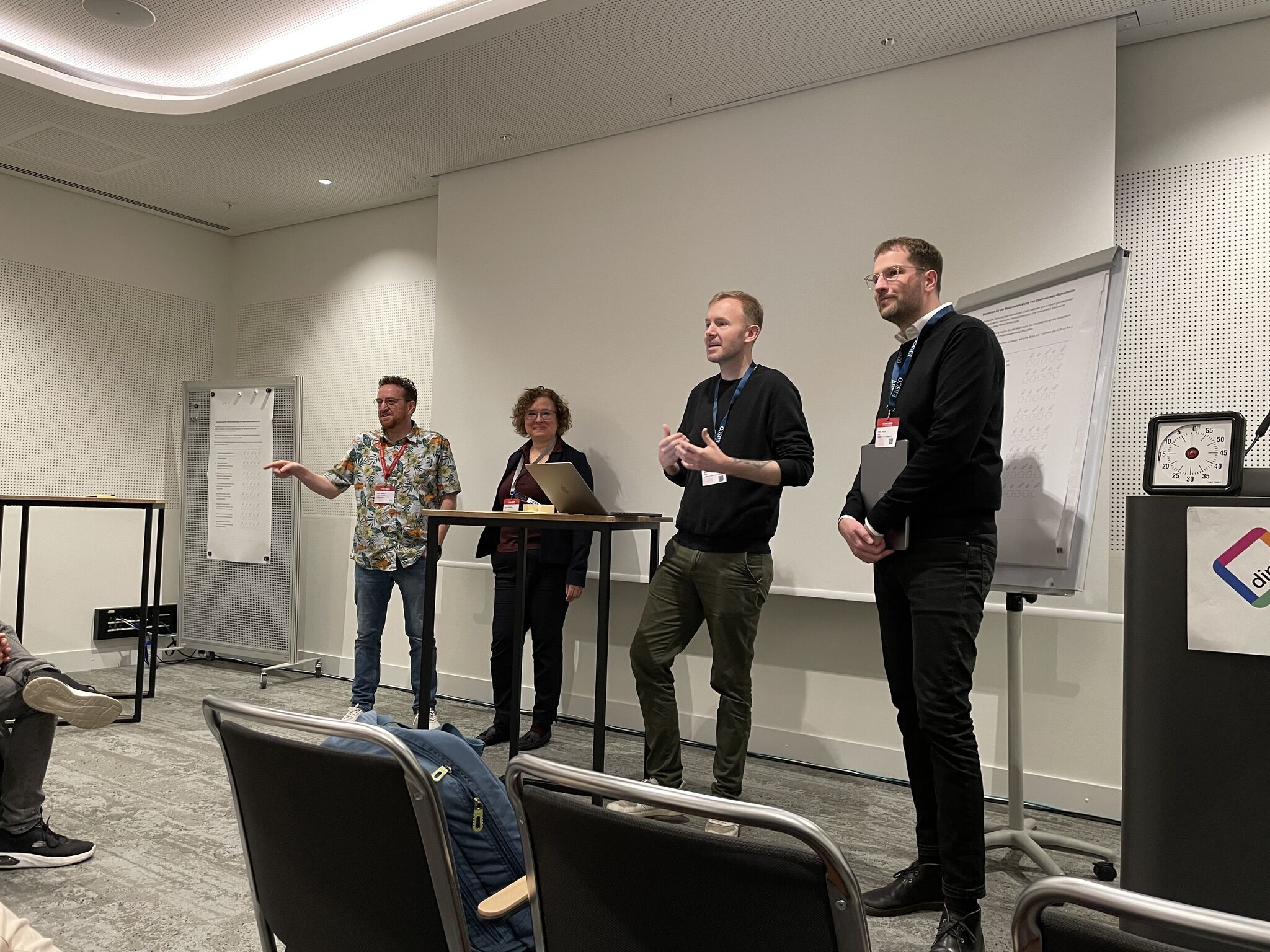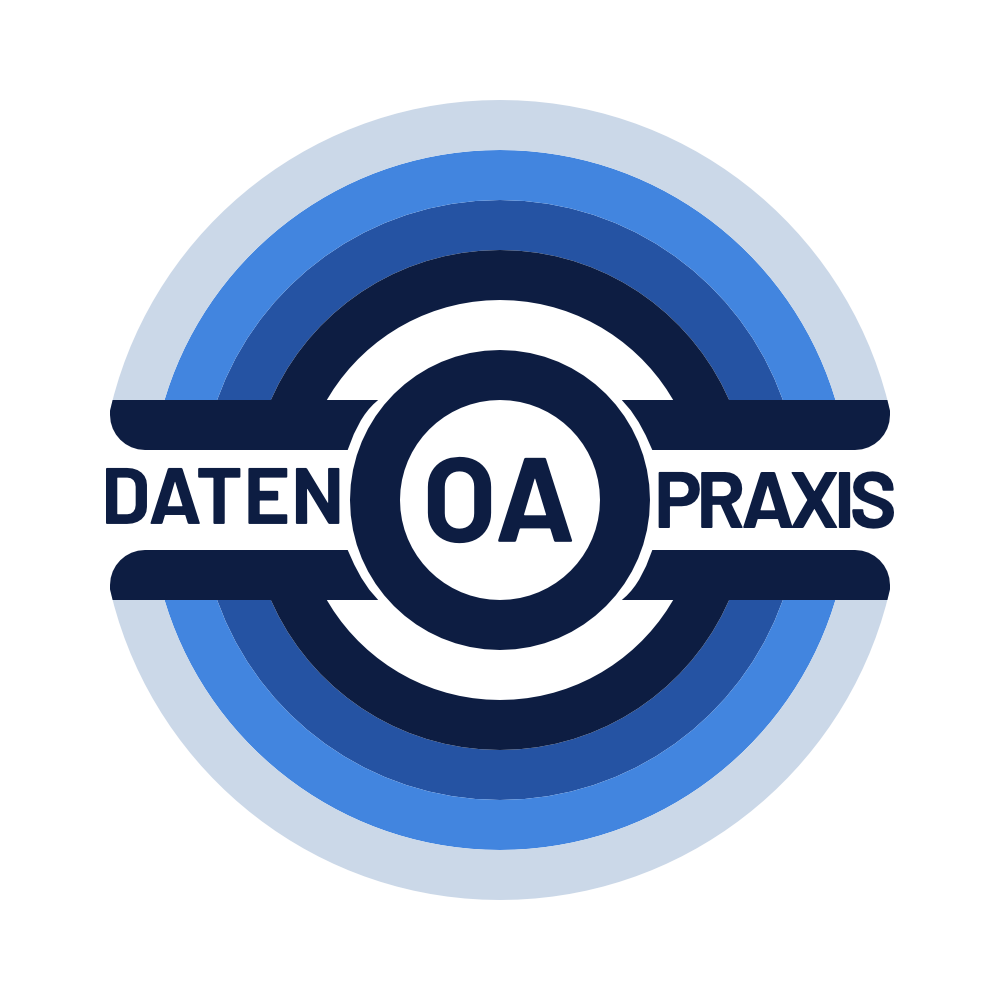
Regardless of whether one is just starting out or has already arrived in the community, as young librarians and information scientists, there are many interesting fields and new developments.

Regardless of whether one is just starting out or has already arrived in the community, as young librarians and information scientists, there are many interesting fields and new developments.

Research is inherently dynamic, leading to equally dynamic data. This dynamic nature of research data raises numerous questions for professionals in information management at research institutions, libraries, and computing centers. Despite the conceptual establishment of research data citation through persistent identifiers (PIDs) in some communities, practical challenges remain.

In the beginning of June 2024, Nature reported on the Japanese Ministry of Education’s plan to invest 10 billion yen in expanding institutional Open Access Repositories (Singh Chawla 2024). This initiative provides a good opportunity to discuss the future of Open Access Repositories at the https://2024.bibliocon.de/. In collaboration with the project “Professionalization of the Open Access Repositories Infrastructure in Germany” (Pro OAR DE)

A sound and complete proof system for separation logic (part 1) Download the PDF version of this article.

We are excited to announce the launch of our new project, “Data Practices for Shaping Open Access Transformation - Analysis, Recommendation, Training &

Businesses have emerged that sell authorship to aspiring doctors to make their residency applications more competitive.

Updates from Form Energy My hot take no one asked for I don’t want to sound pessimistic. But Form Energy has benefited immensely from the MIT / Yet-Min Chiang / Mateo Jaramillo / Ex-Tesla hype-sphere, and I will wait to be excited about their technology when I see it working, at scale, for a long time, at an affordable price.

I sip slowly from the information firehose that is my cornucopia of industry newsletters, RSS feeds, and Google Scholar updates on new publications in the flow battery landscape. There’s not enough time to give everything a proper read, and often if I see something useful I just file it away in Zotero for it to collect digital dust.

Welcome! This is the first post in our new group blog. 1 We, the research group Information Management at Humboldt University’s Berlin School of Library and Information Science, explore the role of digital research and information infrastructures in science within the context of digital transformation.

My collaborator Daniel shared an update on his blog about our the progress of our open-source flow battery kit, so I thought I’d do the same. This was motivated by my previous post (Smith 2024). We’ve been working together with Prof Sanli Faez and Josh Hausener at Utrecht University on their FAIR Battery Project, though the repository for my cell design and jig is currently here.